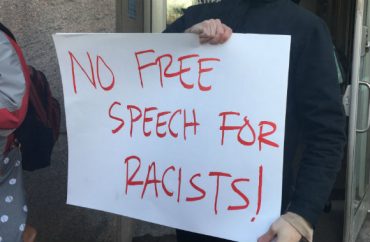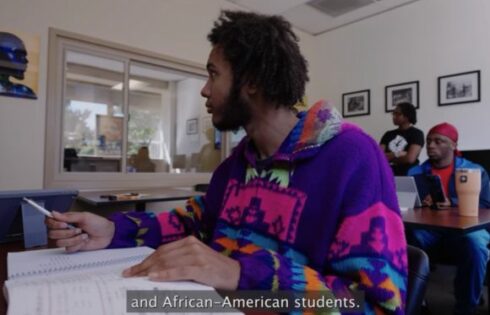
The law may be gray, but the moral issues are black and white
It’s never been more perilous to be a teenager who uses social media.
Recent months have seen several colleges and universities, public and private, rescinding admissions offers to students whose social media activity – often comments about race – has been brought to their attention.
Just this week the University of Richmond dumped an incoming student for an unspecified “offensive and racially charged” video. While it didn’t boot him (yet) for using the N-word in a Snapchat video, Cornell did remove an accepted student from the football team.
These students are not national names like Kyle Kashuv, the Parkland shooting survivor who became a conservative activist, whom Harvard dumped after his comments as a 16-year-old came to light. They are private figures, suddenly thrust into the spotlight by peers and mob leaders such as Disney actress Skai Jackson.
It’s legally dubious whether colleges have the authority to rescind admission to students on the basis of offensive social media posts, which implicate either the First Amendment or their own contractual promise to honor freedom of expression.
But there’s a broader question: Are colleges honoring their own missions when they rescind admission for causing offense?
The Foundation for Individual Rights in Education highlights some of the legal issues, which are more serious for public colleges bound by the First Amendment but still pertinent for private colleges.
Will Creeley, senior vice president of legal and public advocacy, notes the importance of contract language in putting accepted students on notice when their schools grant them admission. (Harvard has a broad “moral character” revocation condition, for example.)
MORE: Disney actress pressures colleges to rescind admissions for social media
While he urges colleges to rescind admission only in extraordinary cases – true threats of violence and narrowly defined categories of “unprotected speech” – Creeley makes a moral argument that colleges are making the problem they want to fix worse.
“[R]escinding admission lets both the college and the student off easy,” he writes:
Colleges and universities are uniquely prepared to introduce students to the worldviews and experiences of others who have lived lives very different from their own — indeed, they are designed to do so. Confronting new ideas and reevaluating one’s own is the point of a liberal arts education. For many, this will be transformative. For those students who have authored racist social media posts, it may be especially so. Rescinding admission stops the educational process before it has started.
Colleges should consider the consequences of setting forth “a newly exposed and embittered 18-year-old” rather than giving “a determined racist an opportunity for human understanding” of people unlike himself:
[T]here is demonstrative power in allowing a young racist to realize as much, and to learn why his or her words offended and hurt others. A college education may serve as a powerful “call-in,” and colleges are well-equipped to do more lasting work than a social media call-out.
Daily life at college after being identified as the author of offensive social media posts may well be difficult. Social sanctions against racism are real and powerful. But that’s how freedom of expression works. … The student’s beliefs will be challenged, and if the student remains committed to racism, it will not be because that commitment was without serious consequences.
It’s an open question whether a college that rescinds admission for perceived offense really believes in “the power of words and education to change minds and push us further along towards greater understanding, tolerance, and a more perfect union,” Creeley says. If it doesn’t, “democracy is in real trouble.”
MORE: FIRE warns Mass. universities they can’t punish offensive group chat
Like The College Fix on Facebook / Follow us on Twitter






Please join the conversation about our stories on Facebook, Twitter, Instagram, Reddit, MeWe, Rumble, Gab, Minds and Gettr.